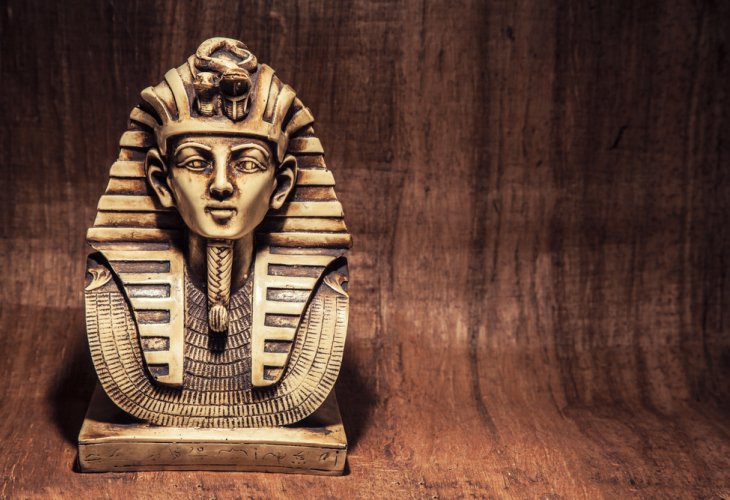Issues in the Bible
Was Pharaoh Circumcised? Ancient Secrets of Egypt Through the Lens of Jewish Tradition
Rabbinic teachings, modern archaeology, and medical science together reveal startling insights about Pharaoh’s leprosy, Egyptian circumcision, and the mysterious power of ancient memory
 (Photo: shutterstock)
(Photo: shutterstock)The sages teach us fascinating details about Pharaoh’s character and actions during the time of Israel’s enslavement and the Exodus. Today, with modern historical and medical insights, we can shed new light on some of these ancient traditions.
1. Was Pharaoh Circumcised?
That’s an interesting question. We don’t have direct evidence about the specific Pharaoh described in the Torah, but we do know that some Egyptian pharaohs were circumcised. Ancient Egyptian art depicts circumcision ceremonies, and archaeologists have discovered mummified bodies that were circumcised.
The sages were already aware of this. They teach that Yosef introduced circumcision to Egypt so that his brothers would not feel different or alien when they arrived there. Not all Egyptians practiced it, but the fact that it existed at all in Egypt made the idea familiar and socially acceptable.
However, the sages clarify that gentile circumcision is incomplete because it lacks priah — the uncovering of the foreskin. Only Avraham’s descendants received the full command of brit milah with priah, marking it as a divine covenant rather than a mere cultural ritual. Even the descendants of Yishmael, who circumcise themselves, do not perform priah, and therefore, according to Jewish law, their circumcision does not count as a true covenantal act.
2. Pharaoh’s Leprosy and the Blood of Children
A chilling Midrashic tradition tells us that Pharaoh was afflicted with leprosy, and his magicians advised him to bathe in the blood of Hebrew infants as a supposed cure.
This horrifying image gains some context when we consider practices known from the ancient world. Throughout history, people believed that contact with weakened or related substances could help fight disease — what we now understand as an early, crude form of immunization.
For example:
In ancient China, healers used powder made from the scabs of smallpox patients to inoculate others. They didn’t know how it worked, but it often prevented severe infection — a primitive forerunner of the vaccine.
Other cultures mentioned treating diseases by feeding patients the waste of recovered individuals, an accidental form of introducing antibodies.
Even the Mishnah mentions a practice of feeding a rabies patient the diaphragm of the rabid dog that bit him — again, a kind of ancient immunotherapy.
Modern medicine also recognizes that children develop immunity more effectively than adults. We saw this during the COVID-19 pandemic, where children generally suffered milder symptoms.
If leprosy (in whatever form it existed in Egypt) was present, it is conceivable that the blood of certain infants who had developed natural immunity or antibodies could, in rare cases, help counteract infection. Statistically, a ruler who slaughtered and bathed in the blood of hundreds of infants might — purely by chance, absorb some antibodies that offered resistance. Horrific as it sounds, this could explain why Pharaoh’s advisers clung to such a practice.
3. Pharaoh’s Claim: “I Do Not Know the Lord”
When Pharaoh arrogantly declared, “I do not know the Lord” (Shemot 5:2), the Midrash explains: “At that moment, Pharaoh took out a scroll of the gods. He began reading: ‘The gods of Edom, of Moab, of Sidon…’ and said, ‘I have read all their names, but I find no mention of your God!’” (Midrash Tanchuma, Va’era 5)
Amazingly, Egyptian texts describe a similar royal practice. Scholars note that pharaohs were known to consult lists of deities preserved in temples and archives known as the “House of Life.” As Dr. Chaim Gavriahu writes in Pharaoh, King of Egypt (Machanayim Journal, issue 105): “From Egyptian sources we learn that in certain cases, Pharaoh would read from and examine a list of gods kept in an institution called the ‘House of Life.’”
This parallel suggests that the Midrash preserves authentic historical memory. The rabbis were not inventing legends but transmitting oral traditions rooted in ancient events. Even when the details seemed mysterious or mythical, they carefully recorded them — trusting that one day, future generations might understand their meaning.
Indeed, many ancient rabbinic accounts have found remarkable confirmation in archaeology, medicine, and historical research thousands of years later.
As the sages said: “If it seems empty — it is only empty from us.”
If we fail to understand their words, it is our knowledge that is lacking, not theirs.

